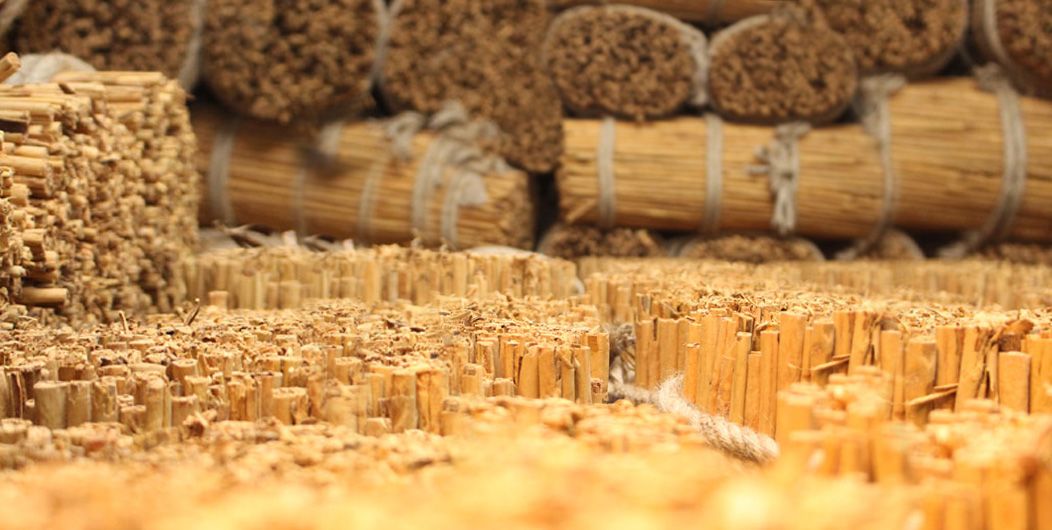

Sri Lanka’s well-deserved fame for spices has its roots in ancient history. Historical records suggest that Sri Lanka started exporting spices centuries ago. Legendary travellers such as Marco Polo (1254 – 1324) recorded and reported information on spices from the East to Europe and described the routes of spices as the Silk Route East, the Sea Route, and the Cinnamon Route. We can take pride in the fact that from those times to the date, we’ve successfully enshrined our good reputation and have made it glow even brighter.
While Sri Lanka is best known for the Ceylon Cinnamon which is also known as true cinnamon as opposed to Cassia which looks quite similar to Ceylon Cinnamon but fails to match its extraordinary flavour and medicinal properties.
Sri Lanka’s basket of Spice exports includes Ceylon Pepper, Ceylon Cloves, Ceylon Cardamom, Ceylon Nutmeg & Mace, & Vanilla. Equally important are the herbs and additives such as a variety of chillies, coriander seeds and the leaves, curry leaves, cumin, fennel, fenugreek, ginger, mustard, tamarind and turmeric among others.
Also, Sri Lankan spices are used to produce a whole range of essential oils such as cinnamon leaf oil, clove oil, cinnamon bark oil, nutmeg oil, pepper oil, citronella oil, sesame oil and cardamom oil which constitute value-added Ceylon Spice products, and are in great demand internationally.
Sri Lanka also produces and exports Oleoresins which are mixtures of volatile and non-volatiles of botanicals extracted from such Sri Lankan spices as Black Pepper, Cardamom, Nutmeg, Ginger, Cloves, Garcinia, Lemongrass, and Cinnamon.
The major export markets for Sri Lanka’s Spices, Essential Oils and Oleoresins include Asian, South American and European countries, in addition to the United States of America.
Sri Lanka is the top exporter of cinnamon to the world, catering to nearly 27% of the global demand. Moreover, the country’s pepper production serves nearly 7% of the global demand with mace- 7%, nutmeg- 4%, clove - 3.3%, and cardamom a mere 0.1% respectively.
Recognizing the importance of the sector, the Government of Sri Lanka has provided various types of incentives for cultivation and processing of spices through the Department of Export Agriculture. EDB is engaged in brand promotions for cinnamon & pepper in selected markets. GSP+ concessions are available for the sector (HS:09).
PCC mark designates that the cinnamon is produced, processed, packed in Sri Lanka and sold with no extraneous matters. EDB Sri Lanka is the authorized holder and the protector of Ceylon Cinnamon Certification Mark and the Geographical Indication (GI) on behalf of the people of Sri Lanka.
Ceylon Cinnamon Certification mark has been registered in Europe, USA, Peru, Colombia and WIPO, and Mexico with plans to register the same in Australia and New Zealand.
GI for Ceylon Cinnamon is a sign used as a product indication, which will identify it as originating from a specific country and possess a quality reputation that’s due to that country. GI is a source of competitive advantage for commercialization and possesses dynamic marketing power to help to increase market differentiation mainly in the international markets, allowing a premium price from the consumer. EDB Sri Lanka is the authorized national organization that implements the licensing process & issuing the GI on behalf of the people of Sri Lanka. Obtaining GI internationally depends on the proper protection of quality and the traceability of cinnamon products originating from Sri Lanka.
At EDB Sri Lanka, we believe It is important to strengthen the compliance of the value chain of the cinnamon industry by assisting the companies to implement the minimum requirement of quality standards of cinnamon processing such as GMP. GMP covers all aspects of production; from the starting materials, premises and equipment to the training and personal hygiene of staff.
True cinnamon (Cinnamomum zeylanicum) is a unique spice commodity among all other spices produced in Sri Lanka. Sri Lanka is the largest producer of Ceylon Cinnamon in the world accounting for over 85% of the world market share for true Cinnamon. EDB Sri Lanka holds the ownership/custodianship of the name “Pure Ceylon Cinnamon” (PCC) along with other associate names “Ceylon Cinnamon”, “Sri Lanka Cinnamon” and Sri Lanka “Kurundu” to protect and promote Ceylon Cinnamon. We have registered “Pure Ceylon Cinnamon” Trademark in the EU, Mexico, USA, Peru and Colombia with the objectives of differentiating it from Cassia.
Technical institutions are involved in developing technology and value-added products to fulfil the industry needs.
The growers, producers and suppliers in the Spices, Essential Oils and Oleoresins sector must realise the potential for the sector expansion and must collaborate with EDB and other government agencies to strive towards achieving the ambitious national goals set for this well-yielding sector with ample room for further improvement. Here, they have to pay close attention to the following.
Sri Lanka’s Spices, Essential Oils and Oleoresins Export Sector face the following challenges in particular.
It’s essential to emphasize the fact that exportation of value-added spice products as opposed to spice as a commodity can significantly enhance the total sector earnings. As an existing exporter of Spices, Essential Oils and Oleoresins or an aspiring one, we urge you to look beyond the commodity export and come up with more innovative and value-added spice offerings.